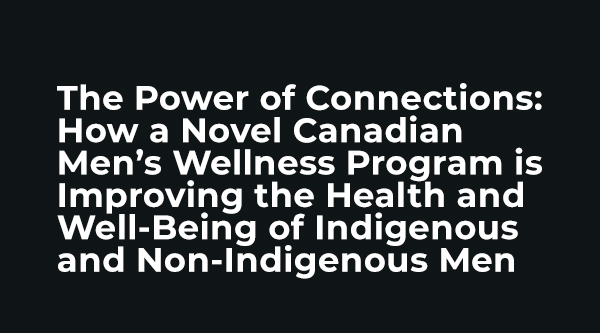How a Novel Canadian Men’s Wellness Program is Improving the Health and Well-Being of Indigenous and Non-Indigenous Men
Iloradanon Efimoff *
University of Manitoba , Canada , efimoffi@myumanitoba.ca
Lyana Patrick *
Simon Fraser University , Canada , lyana_patrick@SFU.ca
Viviane Josewski
University of British Columbia, Okanagan, Canada , viviane.josewski@ubc.ca
Paul Gross
University of British Columbia, Canada , paul@dudesclub.ca
Sandy Lambert
DUDES Club Elder and External Liaison , Canada , sandy@dudesclub.ca
Victoria Smye
Western University , Canada , vsmye@uwo.ca
Abstract
The DUDES Club is a novel men’s health and wellness organization founded in 2010 in Vancouver, BC. Since 2017, the DUDES Club has rapidly expanded in Northern BC and, with the help of a partnership with the First Nations Health Authority, has grown to include 40 sites in British Columbia and 2 sites nationally. In this study, we analyze data from interviews (n = 5) and 15 focus groups (n = 101) conducted as part of a program evaluation with DUDES Club members, Elders, providers, and health care professionals. We focus on men’s experiences with the DUDES Club to identify four main themes in the data: brotherhood and community, accessible health care information, disrupting colonial constructions of masculinity, and systemic and structural challenges. We conclude with policy recommendations.
Every two weeks in Vancouver’s Downtown Eastside (DTES) neighbourhood, a group of men gather together for a few hours in the evening to share food and ideas, to learn and have fun, and to take a break from their often-difficult daily realities. This unlikely gathering started 10 years ago when frontline workers recognized the need for a safe and supportive space for men to gather. What started as a support group organized around the Positive Living Outreach Program at the Vancouver Native Health Society has blossomed into a national model for men’s health and well-being. This group is called the DUDES1 Club.
Indigenous Peoples in Canada experience a disproportionate burden of both mental and physical health issues (Nelson & Wilson, 2017; Rotenberg, 2016). These health inequities must be understood in light of colonialist and neo-colonialist practices (such as residential schools, the Sixties Scoop, and the overrepresentation of Indigenous children in care), widespread poverty, homelessness, and racism (Currie et al., 2012; Patrick, 2014; Press, 2019; Spence et al., 2016). In healing from past and ongoing effects of colonization, culture is a key source of strength for many Indigenous communities (Assembly of First Nations & Health Canada, 2015; Gone, 2013). An emerging body of evidence for “culture as treatment” points to the significance of interconnectedness in healing and underscores the need to incorporate Indigenous cultural practices into health programming (Barker et al., 2017).
Generally, men are less likely to seek medical attention with regards to their mental well-being. This tendency can have tragic consequences: Men are 3 times more likely to die by suicide than women (Goldenberg, 2014; Statistics Canada, 2019). Indigenous men are at an even higher risk for suicide (Kumar & Tjepkema, 2019). Men’s high rates of suicide might, in part, be due to inadequate diagnosis and treatment of men’s mental health issues (Oliffe et al., 2010; Wide et al., 2011). To this end, the American Psychological Association issued its first guidelines for practice with men and boys (Pappas, 2019). Conformity to dominant ideas of masculinity that stress male independence and fearlessness (“the strong silent type”) may further lead men to disregard their health and avoid seeking timely health care (Goldenberg, 2014, p. S142), which is a concern that is particularly pressing for older men (Tannenbaum & Frank, 2011).


Leave a Reply